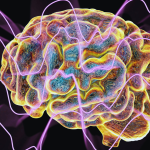
Mind Lab Pro Review in 2026 – is it a legit Nootropic?
November 14, 2025
10 Supplements That ACTUALLY Eliminate Brain Fog in 2026
December 2, 2025Do you feel chronically exhausted, despite getting enough sleep?
That crushing fatigue, brain fog, and muscle weakness might not be stress, it’s often a silent sabotage of your most critical nutrient, Iron.
Iron is essential because it’s responsible for 80% of oxygen transport and energy production in your entire body.
In this video, we’re counting down the Top 8 undeniable signs your body is screaming for Iron.
Let’s dive straight into the signs.
Disclosure: Some of the links below are affiliate links. This means that, at zero cost to you, we will earn an affiliate commission if you click through the link and finalize a purchase.
1. Persistent Fatigue
Iron is the foundation of energy because it’s needed to make hemoglobin, the protein that carries oxygen from your lungs to every cell.
When iron is low, your blood delivers less oxygen to tissues, so your cells can’t make energy properly. That causes ongoing, heavy tiredness and sluggishness that won’t be fixed by extra sleep
In a meta-analysis of six randomized trials and six cross-sectional studies, researchers found that iron supplementation significantly reduced fatigue in people with low iron stores but no anemia.
2. Restless Legs Syndrome
Restless Legs Syndrome is a strong, uncomfortable urge to move the legs, often accompanied by creeping, crawling, or tingling sensations, particularly when sitting or lying down.
Iron plays a critical role in the brain’s dopamine pathways, and low iron levels can disrupt these pathways, leading to RLS symptoms, especially at night.
In a review of studies, researchers found that low iron in the brain is linked to restless legs syndrome and that iron treatment, either oral or intravenous, can reduce symptoms.
3. Headaches and Dizziness
Frequent headaches and dizziness are common symptoms of iron deficiency.
When the body senses reduced oxygen-carrying capacity in the blood, it prioritizes oxygen flow to the most vital organs.
However, this struggle can lead to insufficient oxygen reaching the brain, causing swelling of arteries and resulting in headaches, lightheadedness, or feeling faint.
In a literature review of clinical and observational studies, researchers found that iron‑deficiency anemia is more common in people with migraine and that iron supplementation reduced migraine frequency and intensity in patients with confirmed iron deficiency.
4. Hair Loss
While many things cause hair loss, iron deficiency is a common culprit, especially in women.
Iron is required for DNA synthesis, which is essential for the rapidly dividing cells of the hair follicle.
When iron stores are low, the body shunts the remaining iron away from non-essential functions like hair growth, causing hair follicles to enter a resting phase too early, resulting in shedding.
In a clinical review of diagnostic studies and treatment reports, authors concluded that iron deficiency is a plausible and potentially reversible contributor to diffuse hair thinning, and that treating iron‑deficiency anemia improves outcomes.
5. Strange Cravings (Pica)
Pica is a condition characterized by a compulsive craving to eat non-food substances.
While its cause is not fully understood, it is frequently associated with iron deficiency.
Common cravings include ice, dirt, clay, or starch.
The consumption of ice is particularly strong, with some theories suggesting the cold temperature temporarily relieves tongue pain or helps stimulate alertness to combat fatigue.
In a scoping review of 20 articles, researchers found that pica was associated with iron‑deficiency anemia and that treating the anemia led to resolution of pica symptoms in the reported cases.
6. Swollen and Sore Tongue (Glossitis)
Iron deficiency can lead to glossitis, which is inflammation of the tongue, causing it to become swollen, smooth, and sometimes pale or oddly bright red.
Iron is necessary for the proper maintenance of the cells that make up the tongue’s lining.
When these cells die off without being properly replaced, the papillae, small bumps on the tongue, disappear, making the tongue appear smooth.
In a clinical study, iron deficiency was linked to tongue pain, lower pain thresholds, and reduced salivation, and oral iron relieved pain and improved salivation within two months.
7. Cold Hands and Feet
If you consistently have cold hands and feet, it could be a circulatory issue linked to iron.
Iron is crucial for oxygen delivery and heat production.
Reduced oxygen flow to the body’s extremities, coupled with a potentially weakened circulation due to anemia, means your hands and feet receive less heat and less fuel, making them feel chronically cold.
Evidence from an exercise study shows that people with mild iron‑deficiency anemia have reduced heat production, lower skin temperature, and stronger peripheral vasoconstriction in the cold, which can explain chronically cold hands and feet.
8. Increased Susceptibility to Infection
Iron helps your immune system work properly. It’s needed for immune cells that find and kill germs.
If you don’t have enough iron, those cells don’t work as well, so you can get sick more easily and take longer to recover from colds or the flu as shown in research.
How to Combat Iron Deficiency
The fastest and most reliable way to combat iron deficiency and address its symptoms is often through iron supplementation, as seen in research.
If you are interested in a good iron supplement, we have put a link in the description.
As with any supplement, it’s crucial to consult with a healthcare professional before starting iron supplementation.
They can perform a blood test to determine the exact nature and severity of your deficiency and recommend the appropriate dosage and form of iron, which is essential for safety and efficacy.
The other crucial way is to eat foods rich in highly bioavailable iron (heme iron), which include red meat, liver, and seafood.
You can also increase absorption by pairing plant-based iron (non-heme iron) sources like lentils with Vitamin C sources like citrus fruits.
